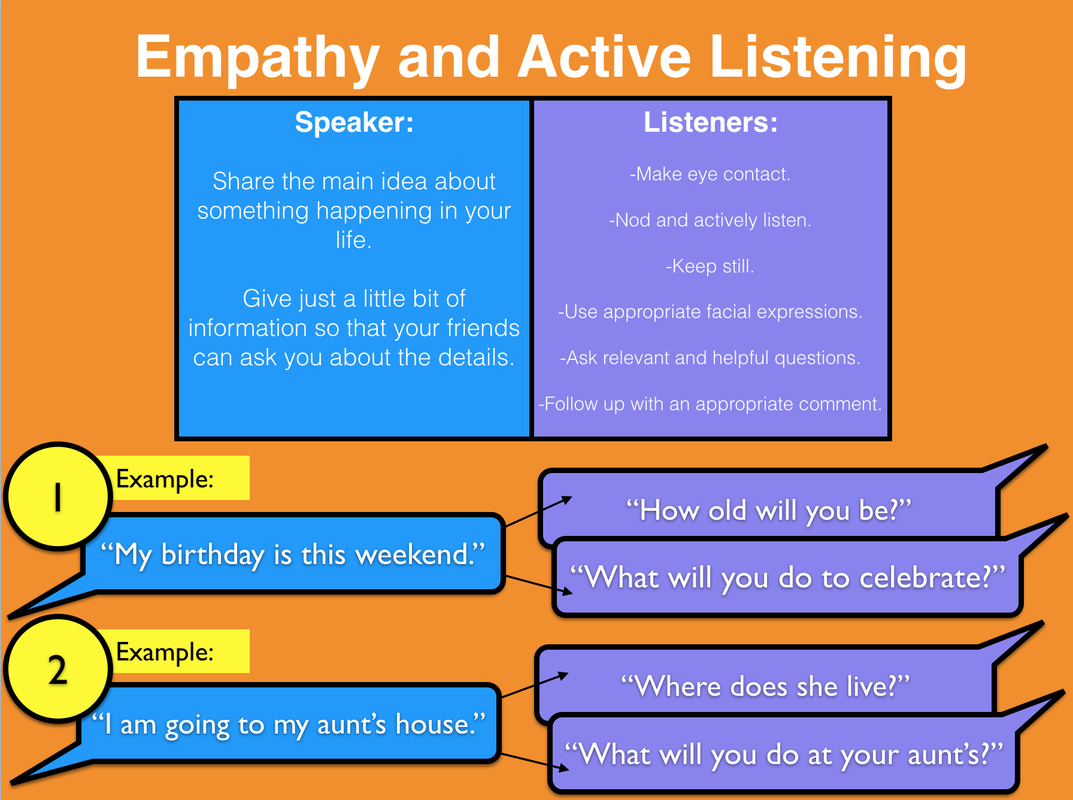
Empathic listening requires that you be non-judgmental, so listen with a completely open mind, do not provide advice or solutions, nor provide reasons why the person shouldn’t feel the way they do.Ī good empathic listener will provide their undivided attention, listen with all of their senses, paraphrase the person’s feelings to demonstrate understanding, and allow for periods, sometimes long, of silence and reflection. While we have spent a lifetime listening to and extracting pertinent information, many people find that listening to a person’s feelings and fears can be not only difficult, but intimidating. Nurses today have to accomplish both-extracting important factual data (medical history, current symptoms, etc.)-all while knowing that the patient is suddenly alone and needs to have their fears and feelings listened to. We can dig deeper into the topic by asking targeted, subject-oriented questions, or we can focus on the person and engage with them by trying to understand their fears and feelings.

In much the same way, we can listen to someone talking and choose to engage with them or just skim over the words they’re saying. For example, when we listen to a musical performance we can listen for pure enjoyment, listen to learn the rhythm, structure or melody line, or we can critically listen in the way a teacher might in order to evaluate a student’s performance. We choose to listen differently in different situations. We hear a sound and then, consciously or unconsciously, we process the sound in our brain, recognize it, categorize it-as a bird chirping, an emergency vehicle siren, or lingual information-someone speaking.īut listening is situational. Most of us put little effort or thought into our listening we just listen. In these super-stressful, pandemic times, a nurse is not only the front-line in the battle against the deadly effects of the Coronavirus but they are also the front-line human who listens to your fears, your sense of helplessness, and all too often your final words. The best way to understand people is to listen to them -Ralph Nichols.

The most basic of all human needs is the need to understand and be understood. It requires connecting at both emotional and cognitive levels allowing each person to both understand and be understood. The simple question “How are you doing?” is a key element in successful empathic listening, or paying attention to another person with compassion, feeling, insight, and emotional identification. One comes over and peering through the plexiglass shield, simply asks “How are you doing?” and a human connection, a critical, often life-saving human connection is formed. Many of the amorphous blue shapes floating around are nurses, some exhausted from working multiple shifts because of the high number of critical patients. Alone, vulnerable and scared.Īs humans, we all have a basic need-an instinct-to connect with other humans and, being in the hospital, there is a stark realization that this virus, this expansive pandemic, has made this need all but impossible to fulfill.
#Empathic listening full#
There is a building full of patients in the same situation that you are.

Where their heads should be, layers of cloth behind a plastic window shield weary eyes, many in tears.Īs alone as you may feel, you’re not alone. In the hospital, amorphous human-shaped forms float in what looks like a sea of blue paper and gloved hands. They must remain outside-you’re now in isolation. The highly contagious nature of this virus means that you will traverse the healthcare system-and your treatment-without your spouse, children, parents, or friends. After navigating the first tent you’re told that you could possibly have contracted the Coronavirus and from that point on, you can no longer have the comfort of your family members with you.
#Empathic listening series#
After weeks in self-isolation, you’re taken to the hospital which now has a series of triage tents lining the front walk. Imagine, if you will, feeling ill-headache, fever-you’ve lost your sense of taste and smell, and it is getting a bit difficult to breathe comfortably.


 0 kommentar(er)
0 kommentar(er)
